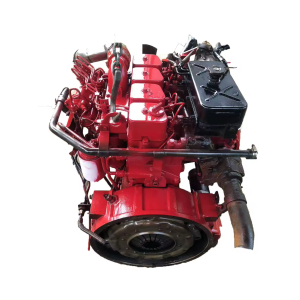Generators are not unfamiliar to most people, but they don’t know much about them. Everyone knows that generators are used when there is no electricity. In fact, generators play an important role in many industries. Role, in the summer of power shortages, even a brief blackout can cause a huge loss of productivity, materials and income in different industries. Today, JVH Industry talk to you about some of the industries most vulnerable to power outages.
1. Manufacturing
Manufacturing power outages due to utility power outages or rationing policies can cause production lines to stop suddenly. This can translate into material loss, machine failure and lost production time. It could also lead to a complete shutdown of the supply chain. It will bring huge economic losses to enterprises, so the manufacturing industry must provide its own diesel generator sets to cope with such power outages.

2. Hospital
In hospitals, patients’ lives are carefully supported by health monitoring systems. Medical equipment that does not function properly can lead to people not receiving timely treatment, leading to death, which is the most serious.
3. Consulting and Information Technology (IT) Services
Consulting services firms and software development facilities house hundreds of highly paid professionals. Even brief downtime can bog them down, resulting in less billable time. In an era when IT operations are the window to organizations in the rest of the world, power outages can cause computer systems to crash, data loss, and abrupt termination of communications with customers. It often takes weeks to rebuild hundreds of man-hours. Programs and data may become corrupted so that software recovery operations may not be resolved for several weeks.
4. Data Center
Data centers form the operational backbone of numerous organizations, including financial services companies, insurance companies, and IT services companies. A power failure here can lead to unrecoverable loss of thousands of records stored over the years, and also disrupt ongoing transactions.
5. Entertainment venues
The cancellation of a money-spinning event even for a short period of time amounts to a huge loss of revenue for the entertainment facility. For example, a prolonged power outage at a casino can result in losses of more than $1 million per day. In addition to resulting in mandatory loss of revenue, the abrupt termination of routine operations can also be hazardous to visitors and operators.

6. Control Center
Traffic signal operations, mass transit systems such as railways, air traffic management control centers, telecommunications and utilities, all rely heavily on continuous power supply to ensure smooth operation. Disruption of such critical operations could momentarily compromise the safety of millions of unsuspecting consumers.
7. Financial companies
It’s not hard to imagine the chaos a power outage would cause to the stock market. In an industry that can generate multi-million-dollar profits in fractions of a second, power outages keep financial firms from closing critical deals on time.
8. Military operations
Power outages leave valuable equipment, weapons and even personnel unable to defend themselves, putting them at risk of attack.
9. Perishables
The pharmaceutical industry, petrochemical industry and food processing plants rely heavily on an uninterrupted power supply for the storage and preservation of extremely short-lived perishable foods. Power outages can result in millions of dollars worth of in-process product being thrown away due to damage, corruption or contamination.
10. Safety and Security
In addition to causing inconvenience, power outages can also endanger the safety of ordinary people. People trapped in buildings or automated access control systems, elevators stopping suddenly, falling into darkness, fire alarms and water sprinklers out of operation, unable to communicate with emergency services by phone or email, these are just a few examples of power outages, Not just a nuisance factor, but potentially endangering the safety and lives of millions of people at the same time.










